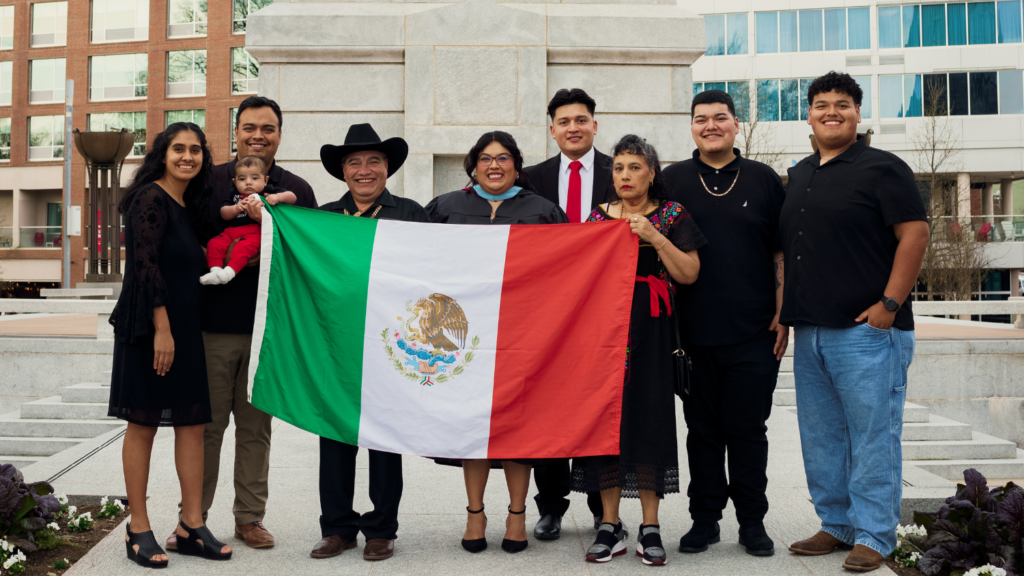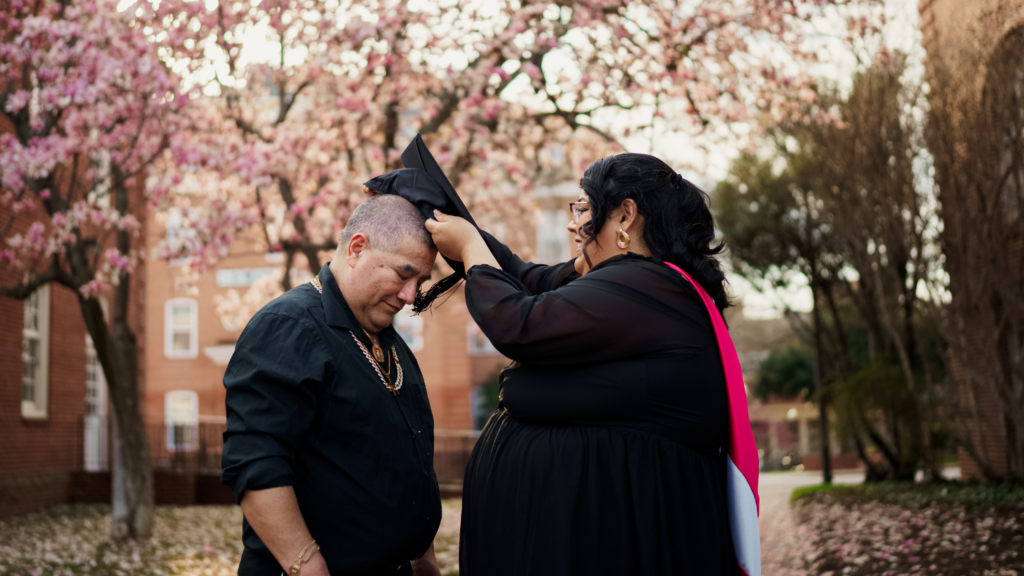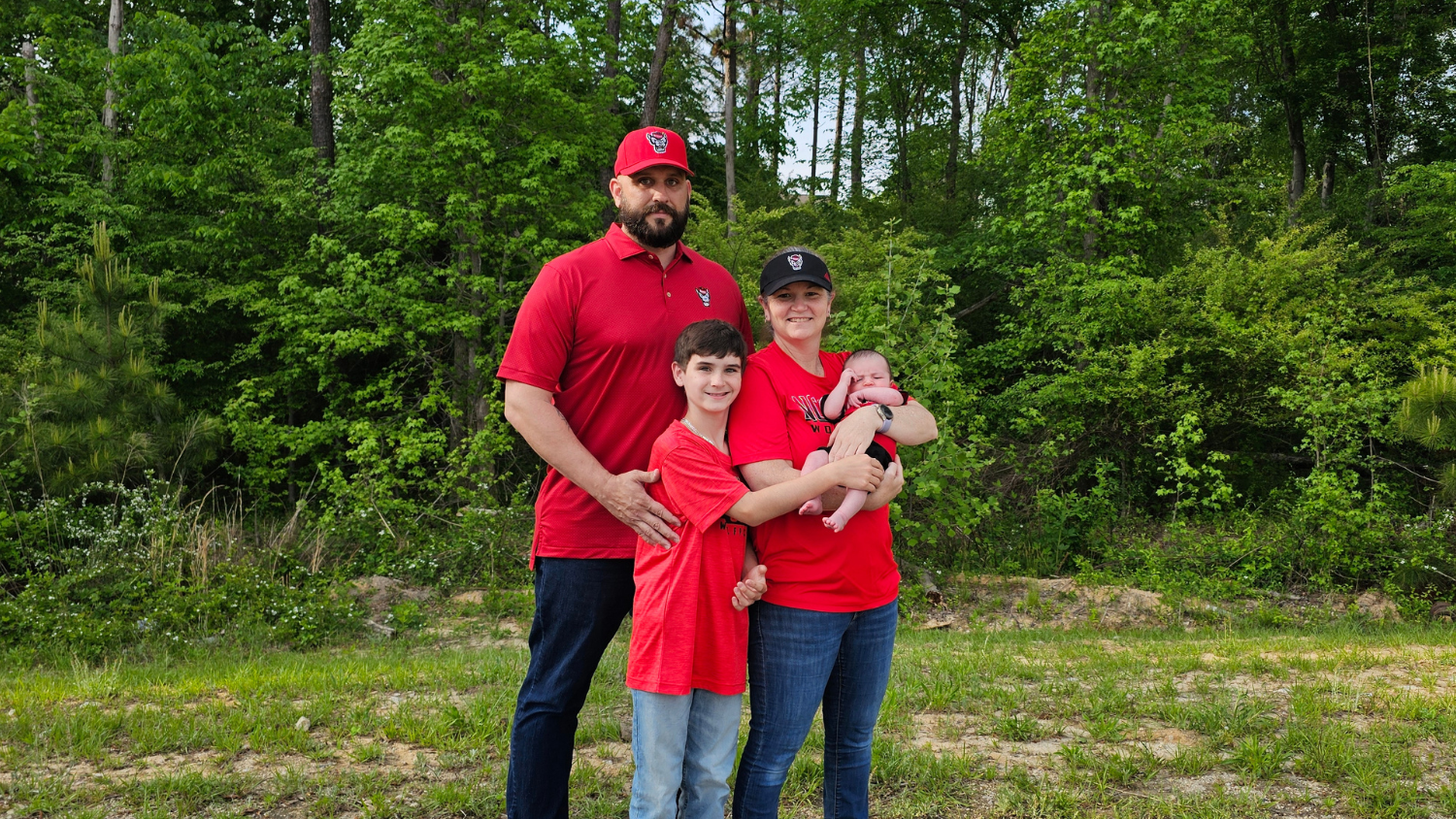Finding Purpose in Mental Health Counseling: Meet Marisol Garcia-Sandoval, CMHC ’25

From an early age, Marisol Garcia-Sandoval believed she was called to serve others. As an immigrant from Mexico and a first-generation college student, she witnessed firsthand the barriers that often prevent individuals and families from accessing the care and support they need.
These experiences sparked her commitment to social justice and a desire to uplift her community through the helping professions.
“I sought an institution that passionately advocates for social justice, embraces diversity, and prioritizes cultural competency — qualities that I ultimately found at NC State,” Garcia-Sandoval shared.
She chose to pursue the Master of Education in Clinical Mental Health Counseling (CMHC) program because it aligned deeply with her values and professional goals. The program’s strong emphasis on multiculturalism, wellness and real-world application made it the ideal foundation for her work as an advocate and counselor.
Currently working at the Community Counseling, Research and Education Center at NC State, Garcia-Sandoval has found that the CMHC program offers more than academic rigor; it provides a supportive environment where students can explore deeper themes of purpose, identity and belonging. “The support and encouragement I have received from my professors have been truly remarkable,” she shared. “They have played a crucial role in shaping my identity as a counselor.”
Building Community Through Authentic Learning
The CMHC program at NC State fosters an environment where students can fully engage with their learning experience without compromising their unique interests and identities.
Garcia-Sandoval found this particularly meaningful on both a personal and professional level. “In class, I was able to show up as my authentic self, share my experiences and learn alongside my wonderful classmates,” she said.
“I am especially thankful for my cohort and the community we have built together. Sharing spaces with such supportive individuals is unparalleled. We are all genuinely rooting for one another, and I look forward to the collaborative work we will be doing outside of the classroom.”
Balancing Life, Work and Personal Growth
Like many graduate students, balancing her work and family responsibilities, while pursuing her degree, wasn’t always easy.
“Being part of the program came with significant challenges, but it pushed me to grow tremendously,” she reflected. “I truly gained a deeper understanding of the power of asking for help, effective communication and prioritizing self-care. I learned to embrace rest and say no when necessary.”

The support of her family, as well as faculty and employers, was crucial to her successful completion of the CMHC program. “Throughout the program, I felt strongly supported by my professors and employers, who encouraged me to create a realistic and actionable plan for my success. My professors demonstrated great flexibility and understanding, acknowledging that life’s challenges can arise unexpectedly.”
Garcia-Sandoval chose the online version of the program because of its flexibility for working professionals. “Classes and assignments seem more manageable and realistic for working individuals, like myself,” she noted. “At a certain point in the program, you do have to make some changes to meet the program demands; however, it is possible.”
Finding Purpose Through the Online Clinical Mental Health Counseling Program
NC State’s Master of Education in Clinical Mental Health Counseling (CMHC) program prepares students like Garcia-Sandoval to make a meaningful impact through a holistic, culturally competent approach to care. Offered in both online and traditional formats, the flexible, part-time cohort program can be completed in as little as three years.
The curriculum emphasizes multiculturalism, developmental theory, and the practical application of clinical counseling principles. It equips graduates to collaborate across schools, colleges and communities to support the mental health and well-being of diverse populations.
“This program has offered me the opportunity for self-reflection, allowing me to recognize my strengths and identify areas for growth,” she explained. “My academic journey here has significantly influenced both my professional and personal identity. I have uncovered interests I had not previously considered and further solidified my passion for social justice.”
Looking ahead, Garcia-Sandoval plans to pursue supervisory roles and licensure, as well as mentor early-career therapists. “I have come to realize my strong leadership abilities and the importance of my contributions. There is a critical need in our communities, and I am genuinely excited to be part of the change within the counseling field.”
Several faculty members made a lasting impression on Garcia-Sandoval, including Professor Cristina Braga, Professor Rolanda Mitchell, Professor Marc Grimmett, Professor Nicole Childs and Professor Terri Tilford.
“These professors stood out in the way that they instill hope, embrace challenges, and lead with kindness,” she explained. “They encouraged me to grow my abilities and skills, gave me grace when I encountered those tough life moments, and consistently shared opportunities with me. A big heartfelt and warm Gracias to them!”
Looking Ahead: Leadership, Mentorship and Meaning
For those considering a career in counseling or thinking about continuing their education, Garcia-Sandoval offered these words of wisdom: “Que tus sueños sean más grandes que tus miedos,” which means “May your dreams be bigger than your fears.”

Walking across the stage at commencement holds special significance for Garcia-Sandoval. “I am the first in my family to graduate with a Master’s degree. I’ve been many firsts in my family — from finishing middle school to graduating high school to attending a 4-year university to being able to advocate in spaces for our community.”
For all the firsts she has experienced, Garcia-Sandoval hasn’t lost sight of her original purpose in starting the counseling program at NC State. In her own words, she described it as “a deeply humbling experience to be entering a profession where I can represent individuals who share similar backgrounds and experiences as my own family.”
Interested in learning more about the Master of Education in Clinical Mental Health Counseling program? Visit the NC State Online program page to explore this and other flexible, online options for working professionals.


